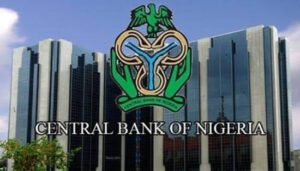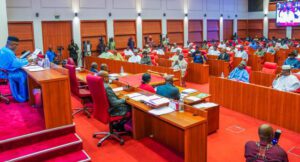
Banks, private sector urge CBN to increase forex allocation to real sector
Nigerian banks and the organised private sector (OPS) have called on the Central Bank of Nigeria (CBN) to increase foreign exchange allocation to the real sector by restoring the priority window and dedicated access for manufacturers.
This was part of the communiqué issued at the 1st National Stakeholders Conference organised by the Association of Corporate Affairs Managers of Banks (ACAMB) in partnership with the Chartered Institute of Bankers of Nigeria (CIBN) with the Theme: Promoting Synergy Between the Nigerian Banking Industry and Organised Private Sector (OPS).
The conference was broadly divided into three segments, namely: stakeholders’ presentations and speeches; panel discussion by leaders of thoughts, and general contributions by the audience also agreed that members of the OPS should repatriate forex to enable the apex bank sustain its forex management.
Stakeholders collectively agreed on the importance of effective synergy and good working relationship between the banking industry and the organised private sector given the critical roles of the two sectors in overall national economic development.
The conference agreed to work with all stakeholders, going forward, to create a more effective financing structure that ensures increased accessibility to funding and governance of such inflows into the real sector.
A consultative Committee of experts and stakeholders drawn from across the sectors and relevant agencies and institutions shall be constituted for continuing and enduring dialogue between the banking sector and the OPS in order to enhance funding and monitoring of the impact on the real sector. Both ACAMB and CIBN will work together on this joint action-body.
The OPS should take advantage of specialised development finance institutions created by the government with active funding from CBN to access affordable funding.
The CBN is open to suggestions and feedback on its programmes and banking operations from all stakeholders and the Apex Bank is ever willing to further collaborate in addressing the issue of effective funding of the OPS.
Both the banking sector and the OPS must put national interest uppermost in their business relationships and avoid deliberate acts of sabotage in the guise of transactions.
There is a need for fiscal policy measures to complement current funding initiatives by the banking industry in support of the real sector.
The more active and synergistic the relationship between banking and private sector, the more the growth and development of the national economy.
In order to foster greater understanding and knowledge of operations of each sub-sector of the OPS, Deposit Money Banks (DMBs) should develop in-house expertise through dedicated desks and requisite professionals of key segments of the OPS.
ACAMB and CIBN should institutionalise the Conference initiative, and ensure that subsequent editions are all inclusive of critical players in the Nigerian Economy.
The communiqué signed by Mr. Rasheed Bolarinwa, President, ACAMB and Dr. ‘Seye Awojobi Registrar/CEO, CIBN brought out exhaustive discussions and interrogations of key issues around the roles and importance of banking and OPS, the constraints being faced by the sectors and the suggestions to improve the mutually-beneficial relationships between the sectors.



